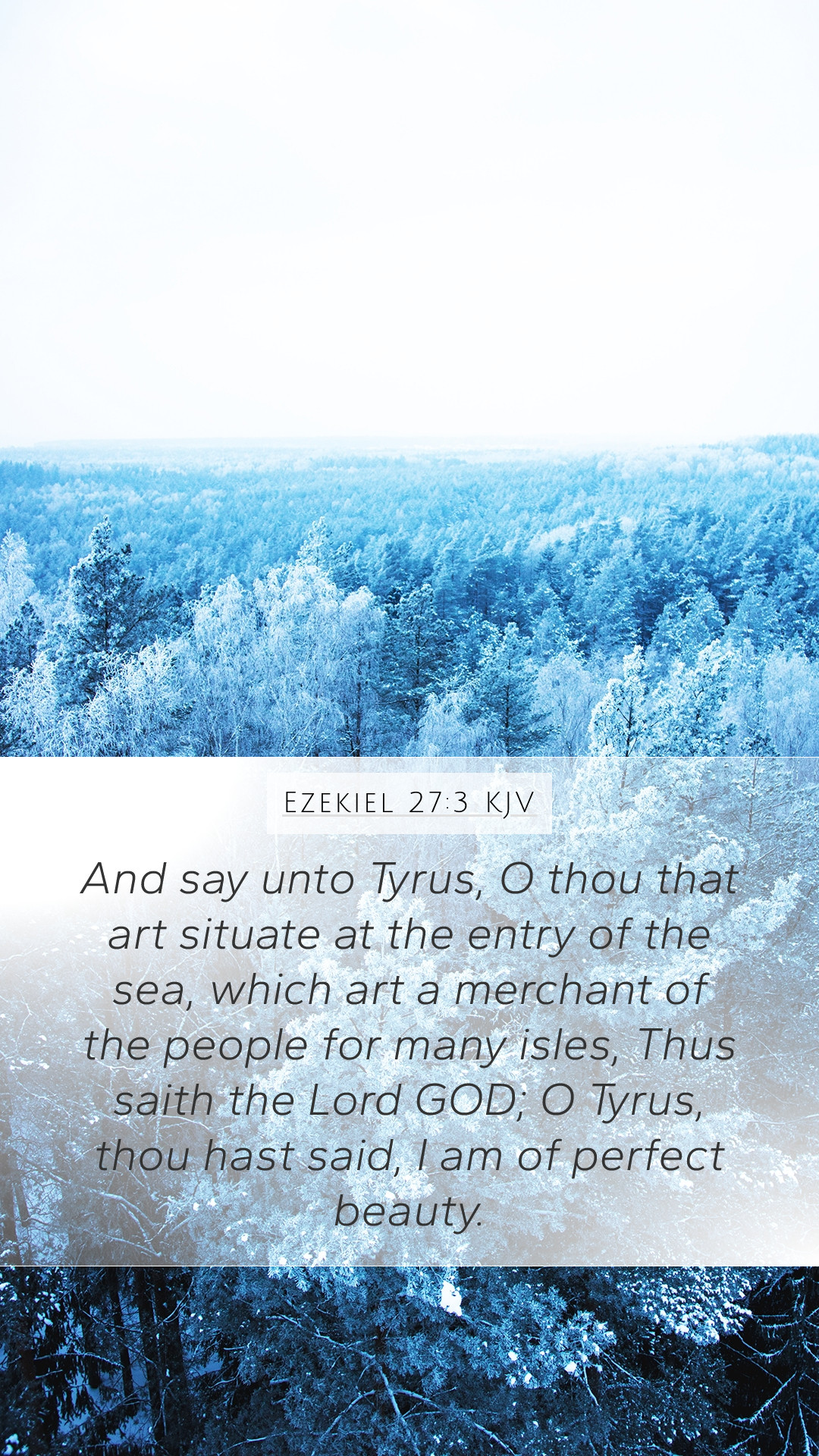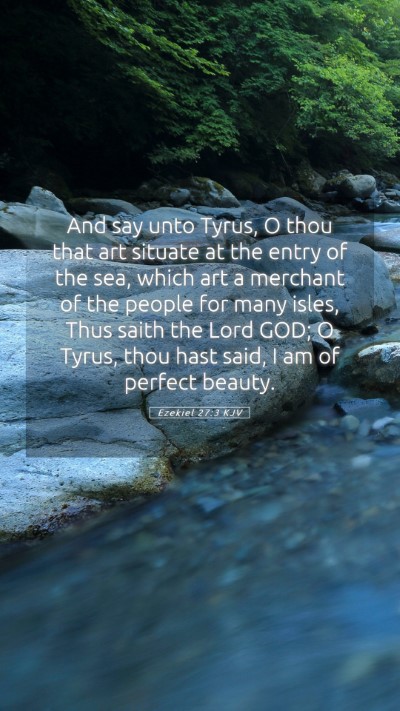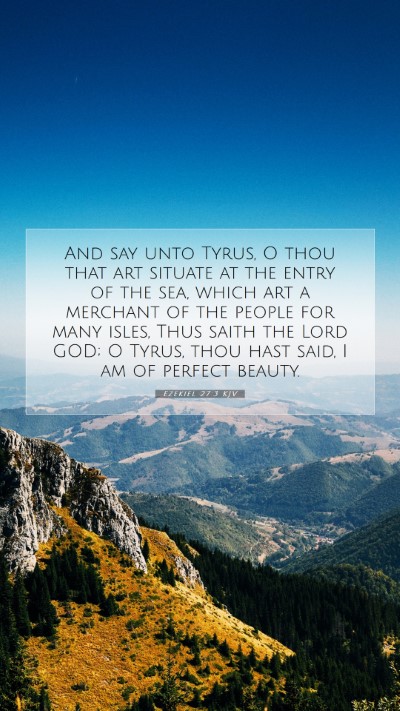Ezekiel 27:3 - Detailed Bible Verse Commentary and Interpretation
Bible Verse: Ezekiel 27:3
Contextual Insight: This verse is placed within a prophetic oracle against Tyre, a city known for its wealth and maritime commerce. The prophet Ezekiel uses vivid imagery to depict the lavish trade and the eventual judgment that would come upon Tyre.
Verse Analysis
Ezekiel 27:3 reads: "And say unto Tyre, O thou that art situate at the entry of the sea, which art a merchant of the people for many isles, Thus saith the Lord God; O Tyre, thou hast said, I am of perfect beauty." This verse highlights several key themes including place, commerce, and pride.
Key Themes and Meanings
- Geographical Significance: Tyre’s location at the sea's entrance made it a central hub for trade, impacting its economic importance.
- Merchant Identity: The phrase “merchant of the people for many isles” reflects Tyre’s extensive trade network, indicating its influence over distant lands.
- Vanity and Pride: Tyre’s claim of “perfect beauty” represents its arrogance and reliance on material wealth, setting the stage for divine judgment.
Bible Verse Meanings from Public Domain Commentaries
Matthew Henry's Commentary
Henry elaborates on Tyre’s strategic location and highlights how this geographical advantage contributed to its prosperity. He notes that Tyre was not merely a place of commerce but became a symbol of pride, emphasizing that their beauty was rooted in their sinful reliance on riches rather than on God.
Albert Barnes' Commentary
Barnes discusses the significance of Tyre’s trade relationships, pointing out that its wealth and resources attracted other nations. He warns that such prosperity can lead to feelings of invincibility, which ultimately incurs divine retribution. Barnes reinforces the notion that the grandeur of Tyre is fleeting and subject to God’s judgment.
Adam Clarke's Commentary
Clarke takes a historical approach, referencing Tyre’s role in the ancient world as a commercial powerhouse. He emphasizes that the verse serves as a divine warning, illustrating the futility of pride and the inevitable downfall that follows when a nation turns away from God, despite its outward beauty and prosperity.
Application for Modern Readers
For those engaging in Bible study groups or seeking to deepen their Bible study insights, Ezekiel 27:3 serves as a reminder of the dangers of pride and self-sufficiency. Applying this to our lives today means evaluating where our confidence lies—are we placing our faith in material possessions or in our relationship with God?
Cross References
- Isaiah 23:1-5: This passage discusses the impending doom of Tyre, paralleling the sentiments in Ezekiel.
- Revelation 18:10: The fall of Babylon is often compared to Tyre, emphasizing the theme of judgment on commercial pride.
- Jeremiah 25:22: This verse mentions the kings of Tyre as part of the broader prophetic warning to surrounding nations.
Conclusion
Ezekiel 27:3 is a profound verse that invites a deep understanding of Scripture. Its implications reach far beyond its historical context, encouraging readers to reflect on the nature of pride, the stability of material wealth, and the ultimate sovereignty of God over nations and individuals alike. Through bible verse explanations and understanding, we can apply these lessons in our lives, ensuring we do not fall prey to the same themes of arrogance and self-reliance demonstrated by Tyre.


